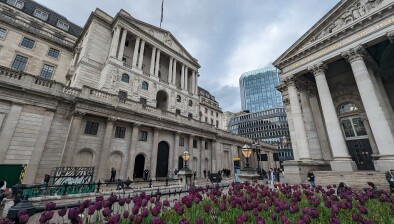Bank of England set to hold rates as UK inflation stays at 3.8%

The UK’s inflation rate held steady at 3.8% in August, reinforcing expectations that the Bank of England will keep interest rates on hold this week.
Figures from the Office for National Statistics (ONS) showed the consumer prices index remained at the same level as July, matching economists’ forecasts. The ONS reported that various price movements offset each other last month. A fall in the cost of air fares was the main downward driver, but this was countered by rising prices for petrol and diesel.
Despite the stable headline figure, food price inflation climbed for a fifth consecutive month, with small increases across a range of items including vegetables, cheese, and fish. This persistent rise in food costs is a key concern for policymakers, who worry it could cause wider inflation expectations to become embedded.
The figures have cemented predictions that the Bank of England’s monetary policy committee will keep interest rates at 4% on Thursday.
Kevin Brown, savings expert at Scottish Friendly, said: “But while inflation is no longer rising, it doesn’t make another rate cut any likelier this year. The Monetary Policy Committee has been insistent that it will proceed cautiously on future rate cuts, with policymakers wary of another price spiral if they move too soon.
“Realistically, we won’t see the next cut until March or April next year now, which will come as a blow to borrowers holding out for a further reduction in borrowing costs before switching to a new mortgage rate.”
Attention is also turning to the Bank’s quantitative tightening (QT) policy, with some analysts, including Luke Bartholomew at Aberdeen, predicting the pace may be scaled back to around £70 billion, a move that could provide some support to the gilt market.
For savers, Mr Brown warned that even flat inflation “eats away at the value of cash” and urged people to shop around for the best rates or consider long-term investments.
Meanwhile, the economic data intensifies the scrutiny on Chancellor Rachel Reeves ahead of her autumn Budget, expected on 26 November. Business groups have warned that planned measures, such as a £25bn increase in employer national insurance contributions, would force them to cut jobs and raise prices.






